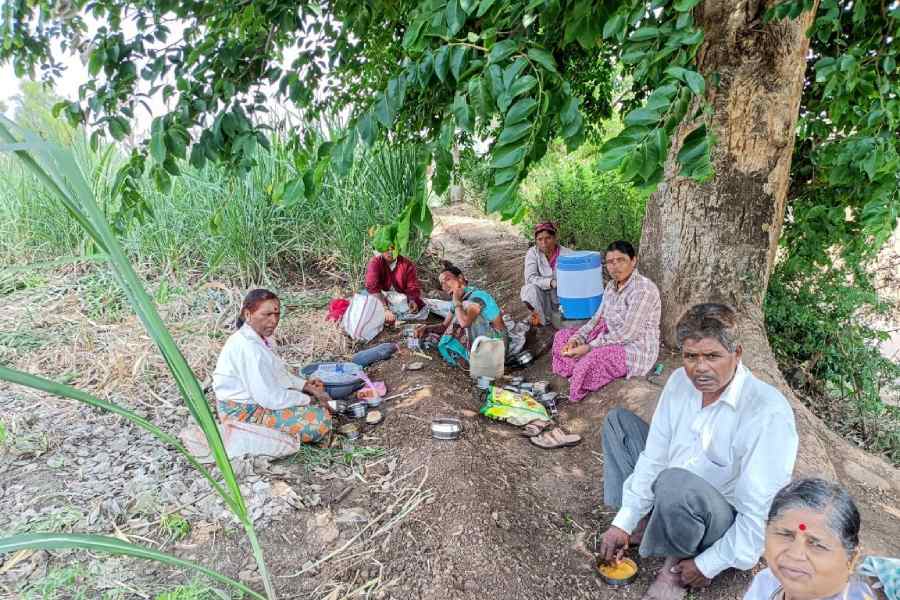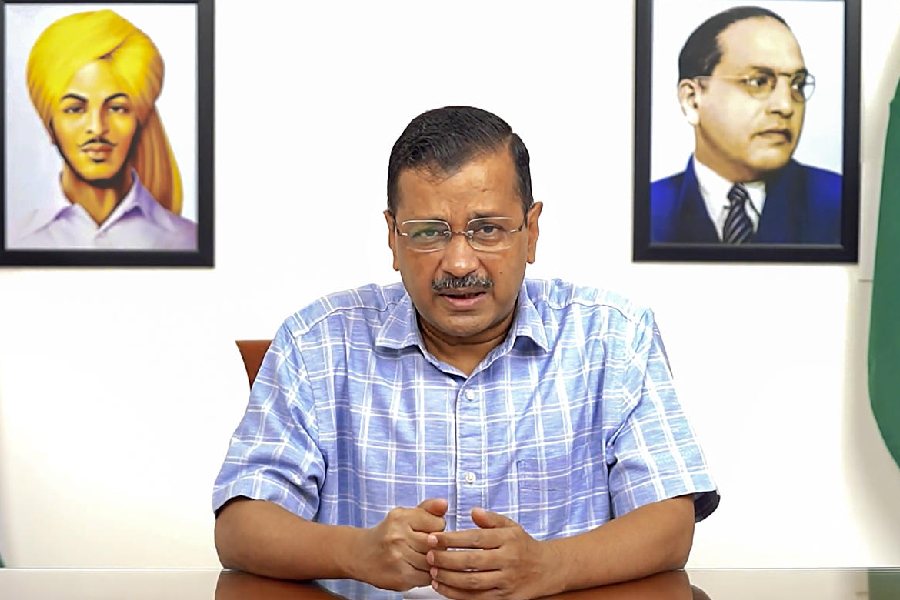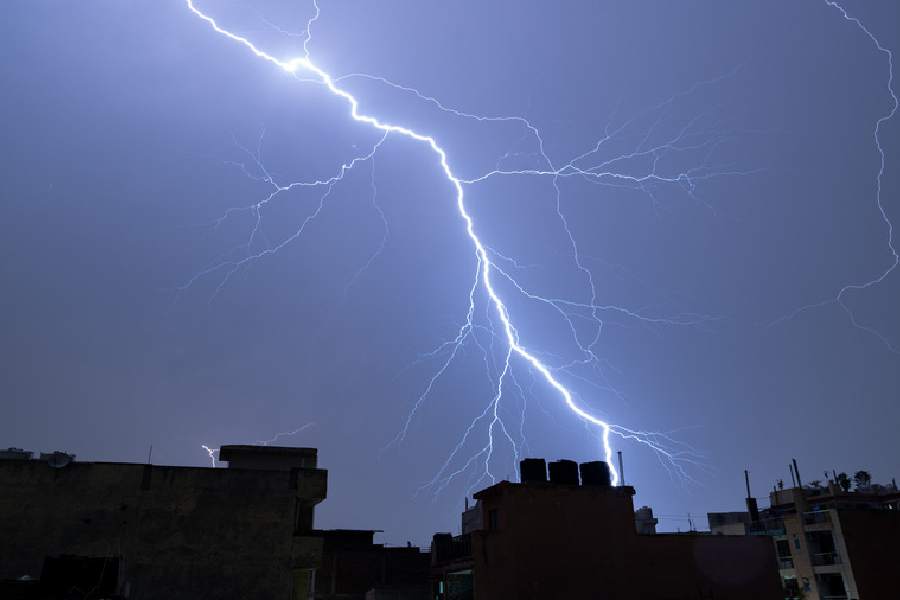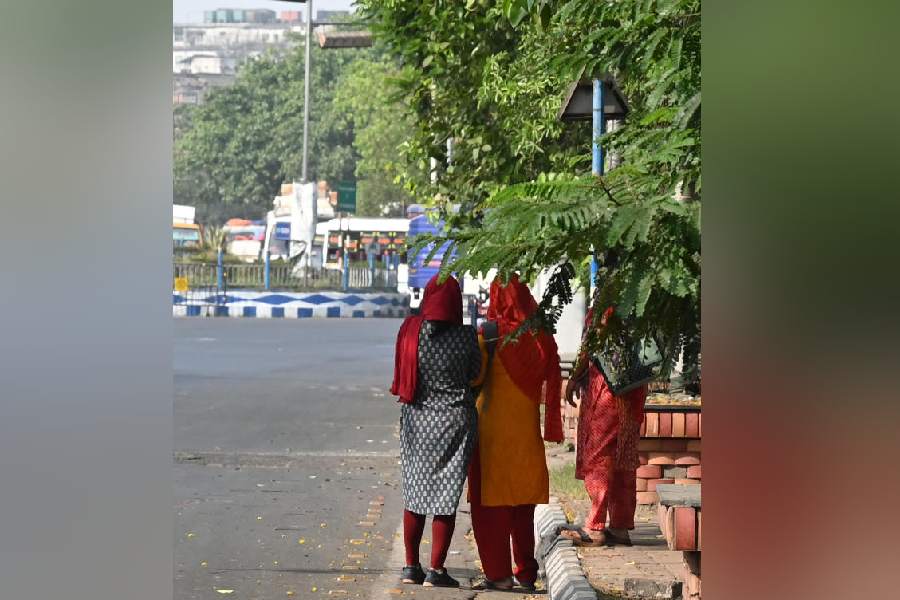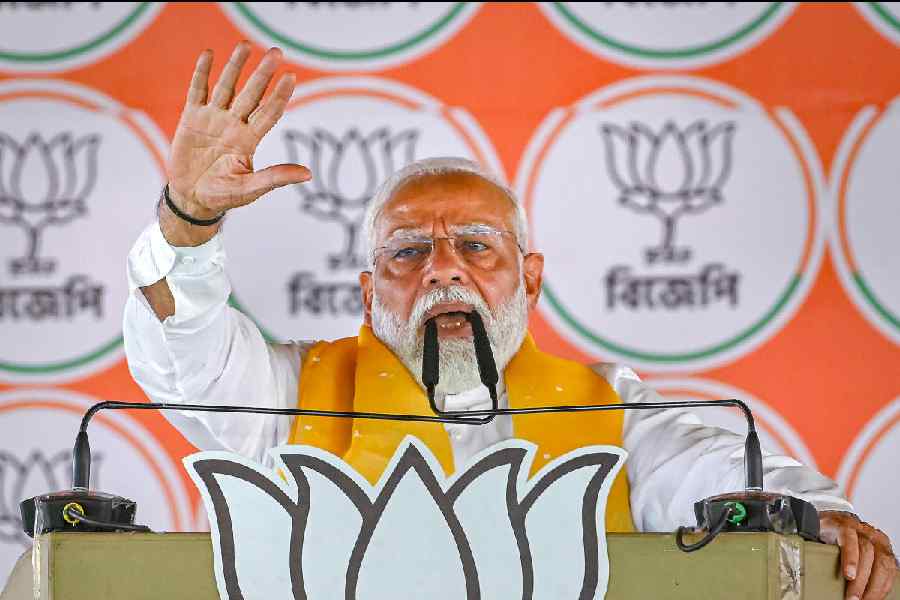New Delhi, April 24: Chief Justice of India T.S. Thakur today chided the government for the shortage of judges that threatens "the country's development" and has filled jails with undertrials, showing rare candour before the Prime Minister and repeatedly wiping tears during his emotional speech.
As Narendra Modi sat listening in the audience, Justice Thakur cautioned that the success of the government's "Make in India" and other economic programmes hinged on the "efficacy" of a judicial system now groaning under a backlog of 3 crore cases.
Justice Thakur, addressing a joint conference of high court chief justices and chief ministers that Bengal alone seemed to have skipped, accused the Centre and states of fighting a "tug-of-war" in shifting responsibility when it came to upgrading judicial infrastructure.
He cited figures, saying the government had in 1987 promised to raise the judges' strength in the country to 40,357 - yet three decades later the number stood at 7,675.
.jpg)
"We are inviting foreign direct investment... we want people to come and Make in India. Those we are inviting are also concerned about the ability of the judicial system to deal with the cases and issues that arise out of foreign investment. The efficacy of the judicial system is vitally connected with the development of the country," the top judge said.
He issued an appeal to the Prime Minister: "And therefore, it is not only in the name of the litigant, poor litigant - people who are languishing in jails - but also in the name of the development of the country, its progress, that I beseech you to rise to the occasion."
Justice Thakur had recently said there were 434 vacancies in the high courts, which has now touched 470. He today regretted that while the collegium (a judges-only panel) had cleared a host of candidates in the past three months, only 140 were appointed while 169 names were still pending with the government.
"How much time does it require (to clear the names) when we have an avalanche of cases? When people are languishing in jail for over 10 years?" Justice Thakur said.
"In Allahabad there are 10 lakh cases. The jails are full -they are overflowing. There may be a stage where it will be difficult to find a suitable candidate."
He indicated that because of the judges' shortage, the high court chief justices might soon start exercising their powers under Article 224A to appoint retired high court judges for two-year periods.
Emotional speech
Justice Thakur was several times seen wiping tears with a finger, or dabbing the corners of his eyes with a handkerchief, as he defended the judiciary against criticism for the country's tardy justice delivery system.
"You cannot shift the entire blame on the judiciary. If you compare the performance of many of the judges with those in other countries, we are head and shoulders above (the rest)," he said.
"The American Supreme Court decides 81 cases per year - nine of them sit to dispose of 81 cases in a year. The average disposal of an Indian judge is 2,600 cases per year, whether it is munsif, high court or Supreme Court judges."
Justice Thakur said that foreign judges who came to watch the Indian judiciary at work always left the country amazed.
"They can't understand how judges can work under such stressful conditions and yet people have faith. Speeches have been made in the past - conferences, seminars, debates in Parliament - but I think nothing appears to be really moving," he said.
"The central government says it's the state government's responsibility. The state governments say, 'Oh! If the central government provides funds and gives assistance to us....' While this tug-of-war goes on, the judge strength remains very few."
He added: "Thirty-eight lakh cases remain where they are in high courts; 3 crore cases in the subordinate courts continue to wait. But perhaps people don't know, and what is never accurately or correctly projected is that in the lower courts we get 2 crore (new) cases every year. And we dispose of 2 crore cases.
"Nobody talks about the disposal.... But there is a limit. There is a limit for a judge to perform or his capacity to perform."
The conference threw up the nugget that while India has 6 judges per one million population, Australia has 41, Canada 75, Britain 50 and the US 107. If the number of India's judges is raised to the promised 40,357, the country will have 32 judges per one million population.
Old wine
Justice Thakur added that the government had merely been asking for regular courts to be converted to commercial courts without new judges or infrastructure.
"Commercial courts are being designated from the existing judge strength and infrastructure. That was never the objective. You need to provide a totally different environment for such courts," he said.
"Today a corporate litigant rubs shoulders, maybe, with a pickpocket, a driver or some small-time thief or offender in the ordinary court. Commercial courts will not serve the purpose if you don't provide the necessary infrastructure and judges' strength. It will be old wine in new bottle."
Justice Thakur listed some of the issues discussed at the three-day conference, which ended today:
• Infrastructure and IT upgrade, filling judges' vacancies, restarting evening courts, appointing retired judges;
• Speeding up cases of undertrial prisoners, who make up 63 per cent of the jail population, with priority to those in jail for 10 years or longer;
• Fast-tracking cases involving women, children, the differently abled and marginalised sections. Strengthening of juvenile justice;
• Reducing the backlog by disposing of all cases more than five years old;
• Strengthening the free legal aid programme.

.jpg)



